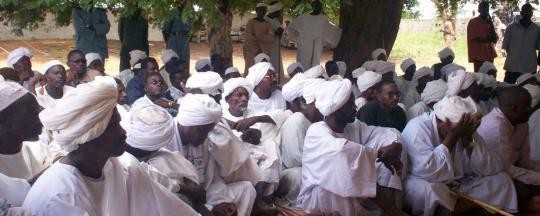Misseriya tribes from Sudan’s border region yesterday expressed their concerns of the spread of disease amongst livestock in South Sudan’s Northern Bahr el-Ghazal state, and requested that the authorities assist the herdsmen with vaccines.
A number of the pastoralists told Radio Tamazuj from the state’s grasslands that they are now allowed to enter South Sudan’s lands given the implementation of a border demilitarisation agreement. They praised the local authorities’ handling of this, highlighting that they faced no obstacles in accessing the land.
However, many of those interviewed are wary of the transmission of disease following a reported rise in cases in South Sudan.
To prevent the further spread to their cattle given the sharing of pastureland, the Misseriya herdsmen called upon authorities in Northern Bahr el-Ghazal state to provide them with vaccines.
“Now we are allowed to enter with our cows freely, no pressure or obstacles placed upon us. Our cattle come from Darfur and entered South Sudan’s pastureland without difficulties. But we are insisting … for our cattle to be vaccinated,” a herdsman added.
Cross-border grazing was one of the main economic activities to be affected by the recent tensions between Sudan and South Sudan. Without dry season grazing access to pasture and water on the south of the border, many pastoralists would lose significant numbers of livestock.
Related:
‘6 million’ livestock at risk in Sennar due to border closure (7 February 2013)
Outbreak of fatal disease in NBeG cattle prompts concern (27 February 2013)



